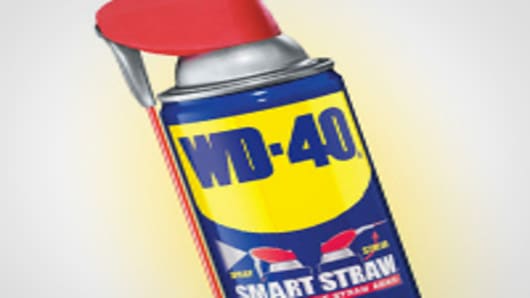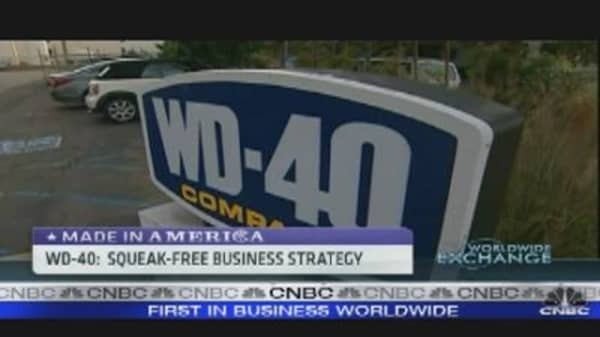Garry Ridge, chief executive of WD-40, is the proud head of one of America’s most recognizable brands, and he’s not even American.
“Does it matter where I came from?" he asked. "Does it matter where I will be tomorrow? “No. Life’s about memories and that’s what we are here for.”
WD-40 was founded in San Diego in 1953. With a staff of three, the company set out to create a line of rust-prevention solvents and degreasers the aerospace industry.
It took them 40 attempts to get the now-signature water-displacing formula just right, a trial-and-error process that gave the company its name: WD-40 comes from “Water Displacement perfected on the 40th try.”
So how did WD-40 make it from the aerospace industry into millions of homes all over the country?
Convair, an aerospace contractor, first used it to protect the outer skin of the Atlas Missile from rust and corrosion. The product worked so well several employees snuck some cans out to use at home.
Now, a dedicated consumer base uses WD-40 for everything from unsticking hinges to cleaning radiators to removing tea stains from countertops. The company’s web site boasts the solution has more than 2,000 uses and counting.
Ridge doesn’t see the company as exclusively American.
Yes, he said, it feels like a quintessentially American brand when he is in the U.S., however, “If you were in my home country of Australia or in the UK you would think it’s a brand of that country, because we’re a global product.”
He was working for the company in Australia in the mid-1990s when he signed on to help with the goal to expand globally. That meant a move to the U.S.
“We’re a global company that happens to be based in San Diego, but once upon a time we lived in a house, in a street, in a suburb, in a city in the world…Today we live in a house of the world,” he explained.





